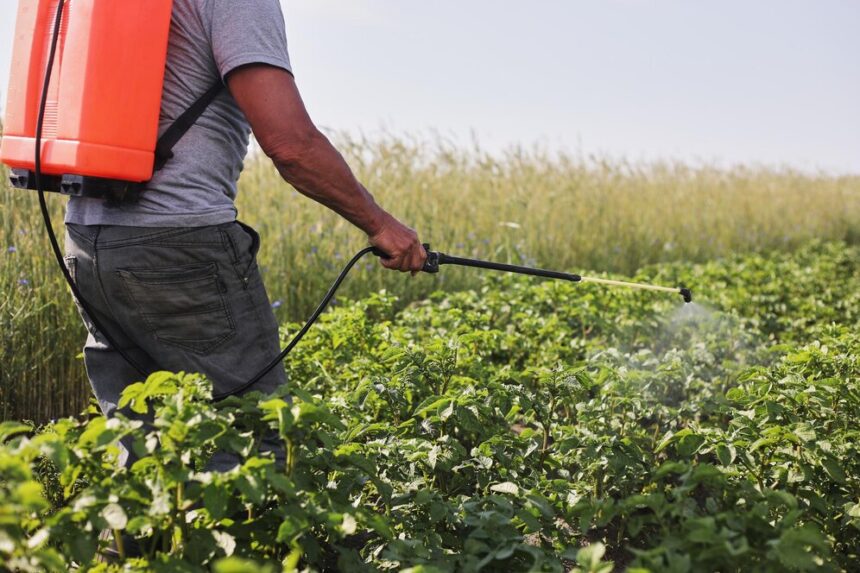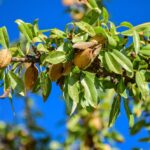Protecting crops from pests is crucial for any farmer or gardener aiming for healthy yields and sustainable production. However, many are now turning away from chemical pesticides due to concerns about human health, environmental harm, and pest resistance. Natural pesticides—derived from plants, minerals, or beneficial organisms—offer a safer and eco-friendly alternative for crop protection.
Whether you’re managing a small garden or a large farm, using natural pesticides can help control pests effectively while supporting soil health and biodiversity. Below is a guide to the best natural pesticides used globally, with tips on how to apply them successfully.
1. Neem oil
Extracted from the seeds of the neem tree, neem oil is one of the most widely used and effective natural pesticides. It disrupts insect hormone systems, making it harder for pests to grow and reproduce.
Effective against: Aphids, whiteflies, mites, mealybugs, and caterpillars
Application: Mix with water and a few drops of dish soap, then spray on leaves and stems. Repeat every 7–10 days.
Benefits: Biodegradable, safe for pollinators when dry, and also works as a fungicide.
2. Garlic spray
Garlic has powerful antibacterial and antifungal properties. When crushed and mixed with water, it acts as a natural repellent for many soft-bodied insects.
Effective against: Aphids, slugs, armyworms, and beetles
Application: Blend garlic cloves with water, strain, and spray directly on plants in the early morning or evening.
Benefits: Easy to make at home, inexpensive, and can be combined with chili or neem for extra potency.
3. Diatomaceous earth
Diatomaceous earth (DE) is a naturally occurring soft rock made from fossilized algae. It damages the exoskeletons of insects, causing them to dehydrate and die.
Effective against: Ants, beetles, flea beetles, and cutworms
Application: Dust around the base of plants or where insects are active. Reapply after rain.
Benefits: Safe for humans and pets, long-lasting when dry, and does not harm earthworms.
4. Soap sprays (insecticidal soap)
Insecticidal soap works by penetrating the outer layer of soft-bodied insects and causing them to dehydrate.
Effective against: Aphids, spider mites, thrips, and whiteflies
Application: Mix mild liquid soap with water (avoid detergents), and spray directly on pests.
Benefits: Quick action, minimal residue, and safe for most plants when used properly.
5. Chili pepper spray
Chili peppers contain capsaicin, which irritates and repels many insects and animals.
Effective against: Caterpillars, beetles, and some mammalian pests
Application: Blend fresh chili or powder with water and a bit of soap. Spray on affected areas.
Benefits: Easy to make, inexpensive, and effective in combination with garlic or neem.
6. Pyrethrin
Pyrethrin is a natural compound extracted from chrysanthemum flowers. It attacks the nervous systems of insects, causing paralysis and death.
Effective against: Mosquitoes, caterpillars, flies, and beetles
Application: Available as a commercial spray or powder. Apply during cooler parts of the day to avoid harming beneficial insects.
Benefits: Fast-acting and approved for organic use in many regions.
7. Bacillus thuringiensis (Bt)
Bt is a naturally occurring soil bacterium that produces proteins toxic to specific insect larvae.
Effective against: Cabbage worms, corn borers, and other caterpillars
Application: Spray Bt on foliage where larvae feed. It is most effective when ingested.
Benefits: Does not harm beneficial insects, humans, or animals.
8. Companion planting for natural pest control
Certain plants act as natural repellents or attract beneficial predators when planted alongside crops.
Examples:
- Marigolds deter nematodes and whiteflies
- Basil repels aphids and tomato hornworms
- Nasturtiums attract aphids away from main crops
Benefits: Long-term protection, soil enrichment, and improved biodiversity in your garden or farm.
Best practices for using natural pesticides
- Rotate pesticides: Avoid resistance by rotating different natural solutions.
- Test before full application: Spray a small section of the plant first to check for sensitivity.
- Time your sprays: Apply early in the morning or late evening to avoid harming pollinators and reduce evaporation.
- Combine with cultural practices: Mulching, crop rotation, and intercropping enhance the effectiveness of natural pest control.
- Monitor regularly: Early detection allows timely intervention and better pest management.
Using natural pesticides for crop protection not only helps manage pests effectively but also contributes to sustainable farming. Neem oil, garlic spray, diatomaceous earth, and pyrethrin are just a few of the many eco-friendly options available. When combined with good agricultural practices and proper timing, these natural methods can keep your crops healthy while protecting the environment and reducing chemical dependency.








